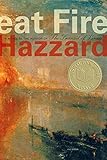When life outside the house evaporated last March, and we turned our focus inward, I thought innocently, “Zoom book group!” My husband and another couple were willing, and I took advantage of their indecision, or perhaps it was polite deference to my profession, to impose my favorite novelist on our unsuspecting friends. I first read The Transit of Venus by Shirley Hazzard in college in a fiction workshop taught by Anita Shreve, who once, with the best of intentions, lectured our class on the “banality” of the subjects we chose to write about, and who, when her most recent novel was selected by the Oprah book club shortly after our class ended, never, to my knowledge, returned to the classroom again. Regardless of her lack of finesse with 19-year-olds, I will be forever grateful to Shreve for introducing me to Hazzard at such a young age and setting me up for a lifetime of the most marvelously rewarding rereading.
 Because Hazzard is not easy. She is perhaps the most economical (read: dense) writer I’ve ever enjoyed, a woman who took 23 years after The Transit of Venus won the National Book Critics Circle Award in 1980 to write and revise her next novel, another whittled perfection, The Great Fire, which took home the National Book Award. The central theme of these two novels is women in love, which is perhaps as banal as it gets, but it is wrapped in an unceasing intelligence in which every look on a face, rustle of a tree branch, and sentence uttered is reflected upon with a piercing and unerring gaze. Take the following paragraph, from the first page:
Because Hazzard is not easy. She is perhaps the most economical (read: dense) writer I’ve ever enjoyed, a woman who took 23 years after The Transit of Venus won the National Book Critics Circle Award in 1980 to write and revise her next novel, another whittled perfection, The Great Fire, which took home the National Book Award. The central theme of these two novels is women in love, which is perhaps as banal as it gets, but it is wrapped in an unceasing intelligence in which every look on a face, rustle of a tree branch, and sentence uttered is reflected upon with a piercing and unerring gaze. Take the following paragraph, from the first page:
That noon a man was walking slowly into a landscape under a branch of lightning. A frame of almost human expectancy defined this scene, which he entered from the left-hand corner. Every nerve — for even barns and wheelbarrows and things without tissue developed nerve in those moments — waited, fatalistic. Only he, kinetic, advanced against circumstances to a single destination.
The prose bristles with anticipation. This is perhaps what Hazzard does best. Her abbreviated sentences (“Only he, kinetic”) force the reader to sit up and pay attention, knowing that every moment, every movement, is precious and portentous. (I’ve written more on Hazzard’s unparalleled prose here.)
I’m a fast reader, and in the past, I’ve been guilty of zipping through Hazzard novels because of their taut energy; I can’t wait to see how her enigmatic and forceful characters next persuade and seduce and propel each other. But this is a tremendous disservice not only to the author but to myself. I deserve better! But better is sometimes hard to do on your own. So this winter, my husband and I read the novel aloud to each other, switching off reading a chapter or two per day, while the other followed along in a second copy. This forced slowdown not only matched the pace of the world around us, it ignited a continuous conversational flame between us. Each of us possessed the liberty to interrupt the other at any moment to say, “Read that again. I didn’t get it.” We would repeat the sentence, mull it over, and try out various interpretations.
In this way, I sometimes felt like I was reading the book for the first time, rather than the third or fourth. I realized I had never fully understood the ending (which I won’t give away here). My husband, a philosophy professor, said he found reading The Transit of Venus as fun and meaningful as doing philosophy, which is like a nymphomaniac saying it was the best sex they ever had.
As the days get colder and darker and we head into another quarantine New England winter, we have The Great Fire lined up as the kindling to light our inner lives.
More from A Year in Reading 2020
Don’t miss: A Year in Reading 2019, 2018, 2017, 2016, 2015, 2014, 2013, 2012, 2011, 2010, 2009, 2008, 2007, 2006, 2005









